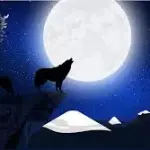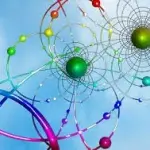 In recent posts here, I’ve been developing the idea of a naturalistic equivalent to “God.” In these pieces, I have used such terms as “Source and Ultimate Context,” “Great Mystery,” “Otherness,” “the All-inclusive,” and “Creational Nature,” to refer to this equivalent notion (1).
In recent posts here, I’ve been developing the idea of a naturalistic equivalent to “God.” In these pieces, I have used such terms as “Source and Ultimate Context,” “Great Mystery,” “Otherness,” “the All-inclusive,” and “Creational Nature,” to refer to this equivalent notion (1).
Taken together, these articles argue that the world as a whole is a self-generating, self-organizing process. Simultaneously creator and creation, it is the source of everything. Each of us, ultimately, arose from, is sustained by, and returns to this process. As such, it is as worthy of our homage as the “God” of any religion.
It’s a strange thing that we humans do – attempting to pack all the vastness of space, time, and the mystery of creation into a single word. Yet we do. We use words like God, Brahma, Allah, Tao, the Absolute; or Cosmos, Universe, Nature, Mystery. We fill these words with great meaning. We can get hypnotized by these simple words and forget the complexity of the notion they represent. And no notion is as vast, complex and mysterious as that captured in English by the three letter word “God.” In developing this naturalistic “God,” I have been trying to reinvest this simple word with that vastness, complexity and mystery that we so easily forget.
Many people who adhere to Spiritual Naturalism are atheists who might well ask “why bother with the word ‘God’? Hasn’t the idea of God caused enough harm”? I certainly sympathize with this position: dogmatic ideas of God have caused and continue to create turmoil and suffering in the world. But I would balance this with the contrary view that enlightened ideas about God have caused and continue to cause much good in people’s lives. It is, of course, my hope that the naturalistic idea of God that I am presenting is a more enlightened view.
While I prefer to use the word “Nature” to refer to the great process of the world, there are times I find the old word “God” preferable.
Most of my family and many of my friends are Christians. If the topic comes up, I find it easier to say that I believe in God, rather than getting into the complexity of belief that Spiritual Naturalism entails. Sometimes I will add to this simple affirmation “but I suspect my idea of God is considerably different from yours,” but not always.
Similarly, I meet a lot of Christians and I have found that, particularly when talking to strangers, if I deny a belief in God, they will no longer be open to what I say, but if I say I do believe, I can maintain dialog with them. By sharing the word “God,” naturalistic traditions like SNS at least have a chance of maintaining a dialog with theists and possibly expanding our own and helping others expand their understanding of “God.”
But my reason for looking for a naturalistic equivalent to the word “God,” is that I can translate the word into this equivalent when I encounter it while reading spiritual texts. I find great inspiration in spiritual texts such as the Bhagavad Gita, the Upanishads, the Bible, the Koran, as well as other inspired writings that come out of the various traditions. When I encounter the word “God” in such texts, I just translate it into the naturalistic equivalent and read on.
It is through the writings and practices of the various traditions that my own naturalistic spirituality has taken shape. These writings often contain fanciful myths and supernatural imaginings of God. One can scoff at these, but I think it shows greater understanding to recognize that people everywhere feel a need to give form and expression to the great mystery of being and the awesome fact of creation. The forms and expressions used represent the best the people of a given age and place are capable of. (Similarly, the forms and expressions I am using are the best of which I’m capable.)
I believe, of course, that the understandings of modern science, incomplete though they are, are superior to those of pre-scientific peoples; but the homage paid by these people may have been all the more sincere, and their communion with the All-inclusive Source all the deeper. We still have, I believe, much to learn from the great spiritual writings we have inherited.
I do not wish to set the “God” of naturalistic understanding at odds with the various understanding of “God” held by others. Any understanding of “God” is fine with me if it guides a person toward greater intentionality, lovingness and compassion.
I do wish to show, however, that we do not need to include supernatural or grand metaphysical notions in order for “God” to serve as such an ideal. God, from within a naturalistic understanding, serves as no less an ideal.
Learn about Membership in the Spiritual Naturalist Society
__________
The Spiritual Naturalist Society works to spread awareness of spiritual naturalism as a way of life, develop its thought and practice, and help bring together like-minded practitioners in fellowship.
Notes:
(1) These articles include the following:
The All-Inclusive (What Naturalism Means to Me), published Sept. 6, 2018
1-1 = The Great Mystery, published Feb. 6, 2020
Defined by Something Larger, published Sept. 3, 2020
Creational Nature, published Oct. 1, 2020













